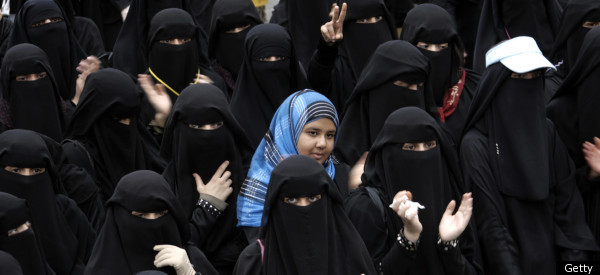4 risks for Libya after Gadhafi
Omar Ashour is the author of The De-Radicalization of Jihadists: Transforming Armed Islamist Movements. For more from Ashour, visit Project Syndicate's website, or check it out on Facebook and Twitter.
BENGHAZI –The people of Middle East of rivers of blood, Western occupation, poverty, chaos, and Al Qaeda if their regimes are toppled. Those threats were heard in Tunisia, Egypt, Yemen, Bahrain, Syria, and – rendered in black-comedy style – in Libya.
A strong belief across the region that the costs of removing autocracies, high as they might be, are low compared. In short, freedom is worth the price.
In Libya, four scenarios may negatively affect prospects for democratization: civil/tribal war, military rule, becoming “stuck in transition,” and partition.
1. Civil/tribal war
The civil/tribal war scenario is the worst risk. When sectarian violence erupted there following the removal of Hosni Mubarak, the revolutionary coalitions adopted the slogan, “You won’t gloat over this, Mubarak.” Repressive dictatorships cannot win free and fair elections.
To win, Libya’s Colonel Moammar Gadhafi has deliberately and successfully turned a civil-resistance campaign into an armed conflict.
Libya, of course, can survive the gloomy prospect of post-authoritarian civil war.
2. Military rule
Another negative scenario is military rule. Several figures from the “free officers” – the group that plotted the 1969 coup against the monarchy – are leading the INC. They also belong to several large tribes, guaranteeing wide tribal representation if a military council were to take power, as in Egypt.
A move by army officers in Tripoli against Gadhafi and his sons might end the conflict, with military commanders getting the credit – and the political capital.
3. Getting "stuck in transition"
Getting “stuck in transition” is a third possible scenario, with Libya remaining in a “gray zone” – neither a fully-fledged democracy nor a dictatorship, but “semi-free.”
This means regular elections, a democratic constitution, and civil society, human rights violations, and restrictions on civil liberties. Five relapsed into brutal dictatorships (including Uzbekistan, Algeria, Turkmenistan, and Belarus), while the rest were stuck somewhere in transition.
4. Partition
The fourth scenario is partition, with the old three-province, Ottoman-style setup commonly mentioned: Cyrenaica (east), Fezzan (south), and Tripolitania (west). Cyrenaica is Gadhafi-free, Tripolitania is not, and Fezzan did not fully join the revolution. In the case of democratic transitions, a success nearby often helps at home. Either country, or both, could offer Libya successful transition models, erecting an important obstacle to military dictatorship or civil war.
The views expressed in this article are solely those of Omar Ashour. Copyright: Project Syndicate, 2011


